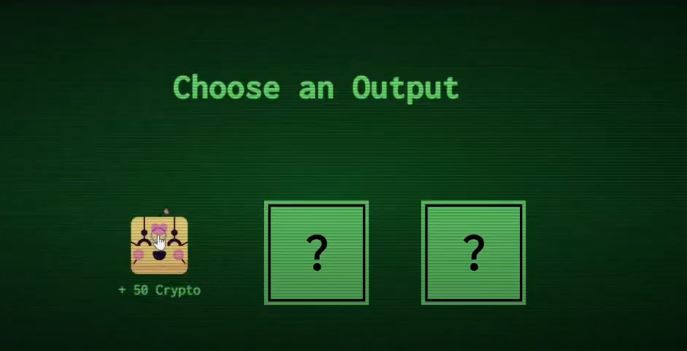Originally intended to be a clever twist on classroom quizzes, Blooket’s Crypto Hack game mode has gradually evolved into something quite unexpected: a playground where cyber-espionage and trivia collide. The most intriguing aspect is that students are now planning virtual heists rather than merely responding to questions. In a manner that resembles a scene from Mr. Robot more than a school review session, they have the opportunity to “hack” their peers by guessing passwords, stealing their cryptocurrency, and getting closer to victory with each right answer.
Crypto Hack thrives on chaos and is strikingly similar to more competitive gaming formats. Accuracy is rewarded, but so are timing, slyness, and a dash of digital trickery. To get started, players select a password from Duck, LeaveMeAlone, or the oddly cute i-Eat-GGs_?? They then scramble to respond to inquiries about cryptocurrency, which is a form of money that can be lost as quickly as it is earned, in addition to knowledge.
| Crypto Hack Blooket Game Information | Details |
|---|---|
| Game Mode | Crypto Hack |
| Hosting Requirement | Game must be hosted manually |
| Primary Objective | Answer questions and hack others to collect Crypto |
| Crypto Earnings | 0.25 tokens per correct answer |
| Player Abilities | From basic to triple Crypto and player hacks |
| Common Passwords | “MATHMATHMATHMATH”, “Z1ON0101”, “TheCakeIsALie” |
| Hacking Tasks | Pattern matching, uploading, button pressing, and more |
| Reference | Crypto Hack – Blooket Wiki |
A swarm of players has discovered ways to tamper with the system in recent months, employing scripts based on JavaScript that have been posted on GitHub to automatically enter passwords, inflate cryptocurrency earnings, and even cause instant wins. These exploits have become remarkably accessible thanks to platforms like those created by shenkeYT and TheCinnamonToastCrunch. No advanced technical knowledge is needed; simply copy, paste, and run the code. Students can use it as a shortcut. It’s a headache for educators in terms of administration.earnings
Integrating these third-party scripts completely alters the play’s nature. Who can move the fastest, cheat the system, and evade detection is more important now than who knows the most. Even though it is subtle, that change redefines the educational process. Teachers like Meredith P. have already mentioned that some of her students found the hacking element to be disruptive, even annoying. As a result, she decided to go back to Quizlet or more conventional game modes like Gold Quest.

Students are learning how to take advantage of the very games that were meant to assist them, thanks to YouTube tutorials and GitHub repositories. The ability of videos like Señor Belles’ gameplay breakdown to demystify Crypto Hack mechanics and share strategies has made them incredibly popular. These days, some students hold these digital creators in the same high regard as influencers or esports icons.
Crypto Hack is a reflection of wider online conduct in many respects. Students are reengineering games to maximize their own benefit, much like social media platforms are manipulated for algorithmic dominance and reach. They are rewriting the game rather than merely playing it by utilizing public code. That can be both exciting and concerning, depending on your point of view.
Nevertheless, there is no denying that this mode encourages creativity in a clever way. When players are hacked, they have to perform interesting and mentally taxing tasks like matching buttons, uploading files, and repeating patterns. These challenges, which take mechanics from Among Us, add layers of complexity that make learning gamified in a way that is remarkably immersive.
This inventiveness has given rise to a burgeoning subculture over time. Advice on outplaying, outguessing, or outright hacking other players is commonly found on Reddit threads, Discord servers, and online forums. While some users praised the tactical depth that Crypto Hack offered, others bemoaned the fact that it felt like a slower Gold Quest with a “hacker costume.” Though opinions vary, interest is still very high.
The unpredictable nature is appealing to a lot of students. In contrast to simple quiz platforms, Crypto Hack introduces a risk. If they are hacked at the right time, even high scorers can lose everything. Even though it could be annoying, this volatility is what makes the game so inventive and captivating.
This trend poses important questions in the larger context of digital education. Should we welcome the engagement that this gamified chaos offers? Or do we run the danger of compromising the integrity of education? Maybe the answer is somewhere in the middle. Teachers may be able to harness the energy without allowing it to spiral with a balanced approach that encourages experimentation while establishing moral boundaries.
Crypto Hack could be repositioned as a resource for learning the fundamentals of cybersecurity and ethical hacking by highlighting digital literacy in addition to gameplay. This change would benefit students practically as well as academically, particularly as digital fluency becomes more and more important in almost every career.
But for the time being, Crypto Hack is an intriguing case study—a product that inadvertently shows how young brains engage with competition, challenge, and code. Its popularity is a reflection of a generation that isn’t scared to push the boundaries of technology and break the rules for enjoyment and rewards.
Blooket might introduce improved game designs, more stringent moderation tools, or updated defenses in the upcoming academic seasons. However, Crypto Hack’s influence will endure even if it is eventually retired or redesigned. It has forced developers and schools to reconsider what digital engagement means, not just for enjoyment but also for development.



